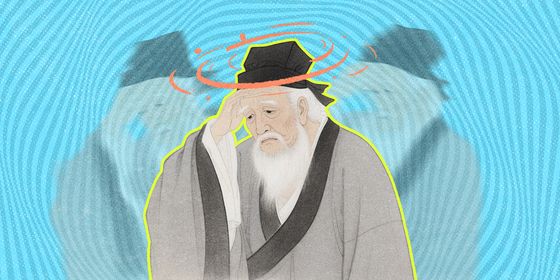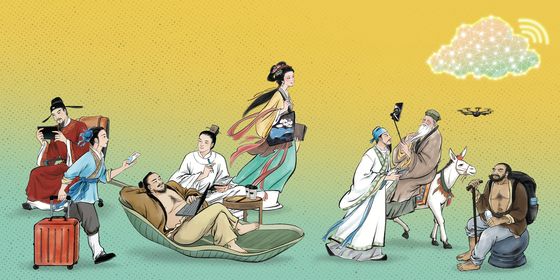The emperor that started China’s western exploration was also the inspiration for many proverbs
Today is the 2,106th anniversary of the death of the Han dynasty Emperor Wu. Considered one of the greatest rulers in Chinese history, Wu, whose title translates as “Martial Emperor,” was known for his administrative talent, hot temper, and bold ambition, which contributed to his success expanding the Han empire’s southern reaches and establishing the beginning of what would become the Silk Road.
All this makes a great formula for folk tales, and many have been since become chengyu (four-character idioms); interestingly, a lot are about women. Here are several still in use today.
Hiding Jiao in a golden house 金屋藏娇
According to the Hanwu Stories, a collection of pseudo-historical fables, when Emperor Wu was 5 years old and just a prince, he met his aunt, Princess Guantao, and her daughter Chen A’jiao during a royal gathering. Princess Guantao asked the young prince whether he wanted to marry Chen when they grew up. The future Emperor Wu happily agree, and boasted that he would “build a house with gold for her to live in.”
The emperor kept his promise. When he claimed the throne, A’jiao became his empress. However, before long, A’jiao fell out of emperor’s favor and was deposed—the proverb “hiding Jiao in a golden house” has now come to mean keeping a secret mistress.
Overthrow the state and the city 倾国倾城
A’jiao was not the only woman that Emperor Wu loved. His concubine Lady Li was renowned for her beauty, and a famous poem by Lady Li’s brother described the emperor’s grief when she died:
There’s a beauty in the North,
Standing alone, out of nowhere.
With one glance she upsets a city;
Another glance, and a whole state falls down for her beauty.
Who cares the collapsed city and state?
When my fair lady is gone.
The idiom “overthrow the state and city” describes a beauty extraordinary enough to cause wars.
Yin and Xing don’t meet each other 避面尹邢
Emperor Wu had a lot of other concubines, and Lady Yin and Lady Xing were among his favorites. In order to prevent jealousy, the emperor ordered that the two never meet. However, Lady Yin was curious and pleaded to see Lady Xing in person. The emperor finally agreed. Unfortunately, when they came face to face, Lady Yin lowered her head and began to weep bitterly, feeling inferior to Lady Xing. Today, the proverb refers to people avoiding meeting each other out of jealousy.
Female messenger from the Jade Pool 瑶池女使
Finally, a female-centric proverb that has nothing to do with Emperor Wu’s wife or concubines; instead, it’s related to a mysterious goddess in Chinese mythology, the Queen Mother of the West. According to legends, the Queen Mother lived in the mythical Jade Pool, and used a spirit called “Blue Bird” to send messages to Wu.
In traditional literature, “Blue Bird” was often used as a metaphor for a messenger, especially one delivering love letters or happy news. The expression “female messenger from Jade Pool” also became a respectful way to refer to common messengers, though no one knows why the messenger is considered female.
Cover Image is screenshot of TV series The Virtuous Queen of Han












